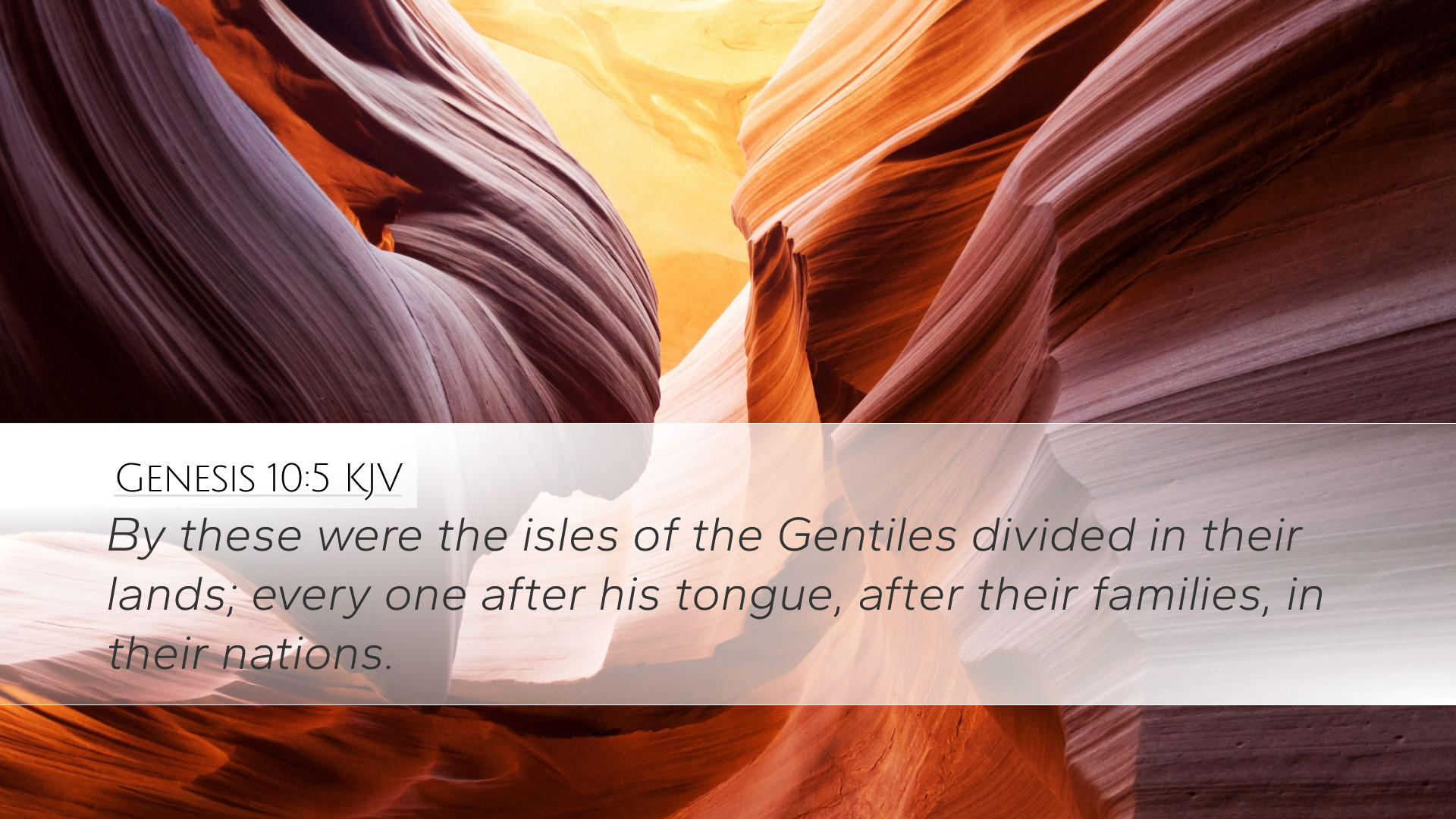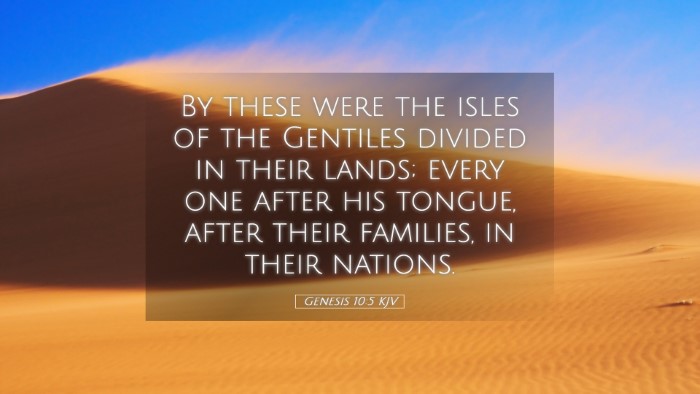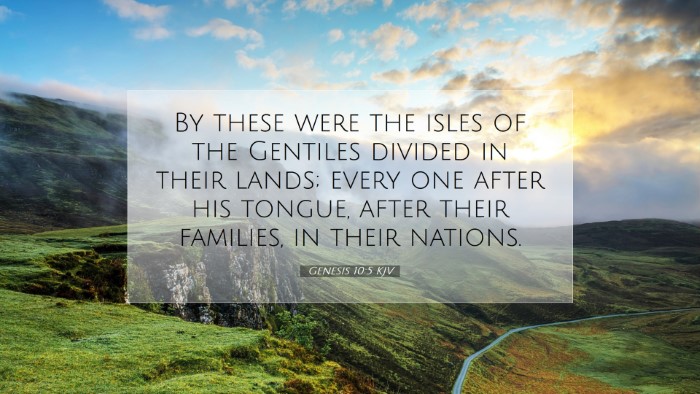Commentary on Genesis 10:5
Text of Genesis 10:5: “By these were the isles of the Gentiles divided in their lands; every one after his tongue, after their families, in their nations.”
Introduction
This verse belongs to a pivotal chapter in the Book of Genesis that provides a genealogical record of the descendants of Noah's sons: Shem, Ham, and Japheth. It serves as a foundation for understanding the origins of nations and their subsequent development after the flood. This commentary aggregates insights from respected public domain sources, such as Matthew Henry, Albert Barnes, and Adam Clarke, elucidating the significance of Genesis 10:5.
Historical Context
Genesis 10, often referred to as the Table of Nations, enumerates the progeny of Noah's sons and marks the dispersion of nations following the flood. The verse in question highlights the division of lands among the descendants of Japheth, indicating the early structure of human civilization.
Geographical Significance
According to Matthew Henry, the mention of “the isles of the Gentiles” suggests the geographical extent of Japheth's descendants. The term “isles” may refer not only to literal islands but also to those regions across the sea, emphasizing trade and exploration that would characterize the early civilizations. This points to a cultural expansion where Gentile nations began to emerge and establish their identities.
Ethnic and Linguistic Diversity
Albert Barnes elaborates on the phrase “every one after his tongue.” This clearly indicates a burgeoning diversity among nations, where language played a crucial role in forming distinct cultures and identities. Barnes notes that the classification of nations based on language underlines God’s sovereign design in determining the boundaries and peoples.
Theological Implications
As the text signifies divisions among nations, it also reflects God’s purpose in human history. Theological implications drawn from this indicate a divine intention behind the diversity of languages and cultures. Adam Clarke posits that such divisions were not mere happenstance; rather, they serve to fulfill God’s overarching plan for humanity, which includes the eventual proclamation of the Gospel to all nations.
Reflections on the Unity and Diversity of Peoples
This verse can be utilized as a springboard for further discussion about unity among diversity. Despite the divisions described, there is a common root that connects all of humanity back to Noah, representing a shared history and familial bond. The different tongues and customs demonstrate God’s creativity and His sovereign hand in guiding the course of human history.
Application for Today's Church
- Embrace Diversity: The church today must recognize and celebrate diversity within the body of Christ, understanding that God’s creation is rich with different cultures and expressions.
- Sovereignty of God: Trust in God's sovereignty over nations and peoples, understanding that His plan is ultimately for redemption across all languages and tribes.
- Missionary Calling: The call to spread the Gospel to all nations is evident, urging believers to engage with diverse populations and share the message of salvation with those of different tongues.
Conclusion
Genesis 10:5 serves as a foundational text for understanding the dispersion of nations and the diversity of human cultures. Insights from historical and theological perspectives not only highlight the significance of ethnic diversity in God’s creation but also encourage believers to recognize their role in His redemptive plan for all humanity. Whether it be through understanding the historical context, embracing modern diversity in the church, or engaging in missionary efforts, this verse provides a profound lens through which we can examine God’s purpose in human history.


